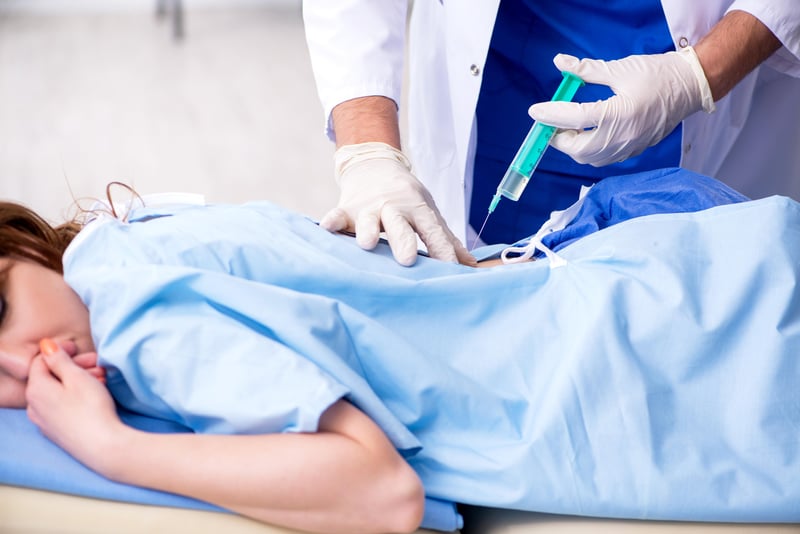Get Healthy!

- Dennis Thompson
- Posted March 6, 2023
Cell Injections Show Promise Against Chronic Back Pain
An injection that relieves low back pain by helping damaged spinal discs regenerate appears to have sustained benefits, new clinical trial data show.
Most patients who received an injection of VIA Disc received back pain relief that lasted at least three years, said lead researcher Dr. Douglas Beall, chief of radiology at Clinical Radiology of Oklahoma in Edmond.
About 60% of patients had a 50% or better improvement in their pain three years after treatment, results showed, while more than 70% had a greater than 20-point improvement in movement and function.
"This is durable relief out through 36 months,"said Beall, who is scheduled to present these findings Monday at a meeting of the Society for Interventional Radiology, in Phoenix. Findings presented at medical meetings are considered preliminary until published in a peer-reviewed journal.
VIA Disc -- the trade name for viable disc allograft supplementation -- is a blend of bone marrow cells and ground-up spinal disc tissue from donors, Beall said.
The cells are "one of the precursors to forming disc,"Beall said.
They are selected from exactly the area where they're precursors to form the disc material, tested for their capability to renew and differentiate from other cells and then mixed with the allograft (disc material) and injected.
Once injected, the VIA Disc blend of cells and donor tissue encourages the cells within a damaged disc to regenerate with healthy tissue, Beall said.
Degenerative disc disease is the leading cause of chronic low back pain, and occurs when the rubbery discs that provide cushion between the bones of the spine begin to wear away.
The spinal bones start to rub together and are more likely to pinch nerves as they get closer to each other, causing pain and reducing movement and flexibility.
The clinical trial initially involved 218 patients randomly injected with either VIA Disc or a saline solution as a control group. After one year, the VIA Disc patients had a peak 56% improvement in their pain and function compared with a 45% improvement in the saline patients.
To see if the VIA Disc patients would do any better as the years rolled by, researchers recruited a smaller group of patients to an extension of the trial.
After two years, VIA Disc patients had a 41% improvement compared to 22% for the saline group, Beall said.
At the two-year mark, about 35% of the patients in the VIA Disc group were re-treated for their back pain, compared with 50% of the patients who received saline, Beall said.
All those re-treated received the VIA Disc injection, and at three years out, the entire group had a 51% improvement in pain and function, results showed.
"There were no persistent significant adverse effects,"Beall said. "This was well-tolerated and very safe."
The clinical trial was funded by VIVEX Biologics, maker of VIA Disc. The treatment is being evaluated for approval as a biologic product by the U.S. Food and Drug Administration, Beall said.
These results indicate that "viable disc allograft supplementation is the ultimate treatment for degenerative disc disease,"said Dr. Stanley Golovac, an interventional pain specialist and chief medical officer for Healent.com.
"This allograft treatment is an important advancement in how we treat this disease because it offers patients lasting improvement both in chronic low back pain and in their quality of life,"he added. "The implications for this study are far-reaching, as the treatment offers many people who suffer from low back pain a path to improved function and durable pain relief."
More information
The Cleveland Clinic has more about degenerative disc disease.
SOURCES: Douglas Beall, MD, chief, radiology, Clinical Radiology of Oklahoma, Edmond, Okla.; Stanley Golovac, MD, interventional pain specialist and chief medical officer, Healent.com; Society for Interventional Radiology, news release, March 1, 2023

